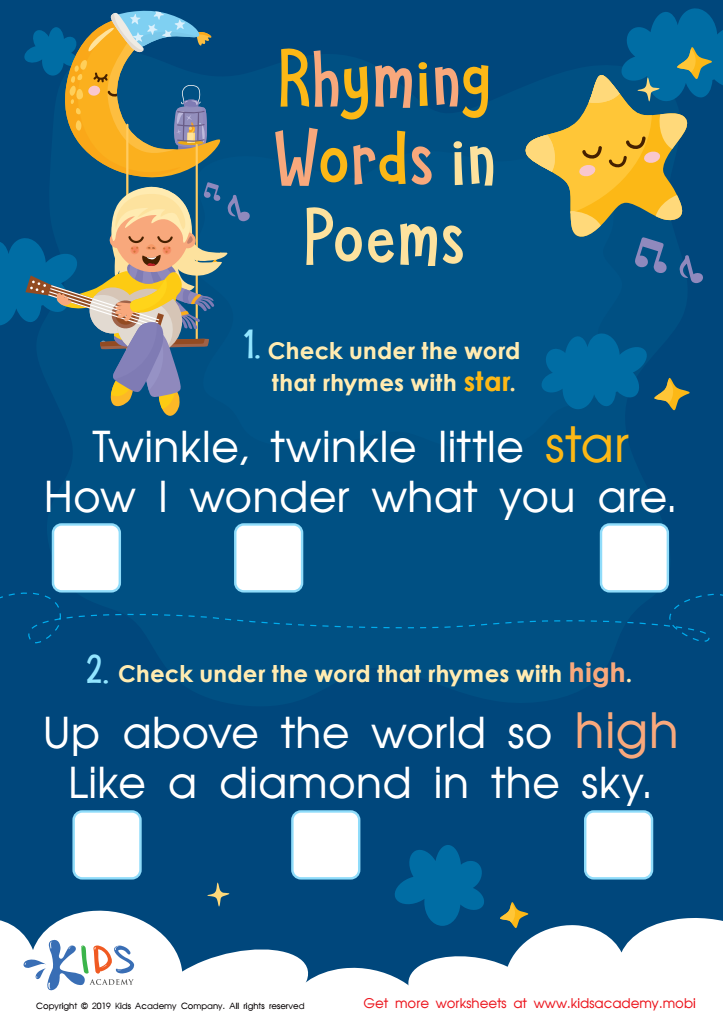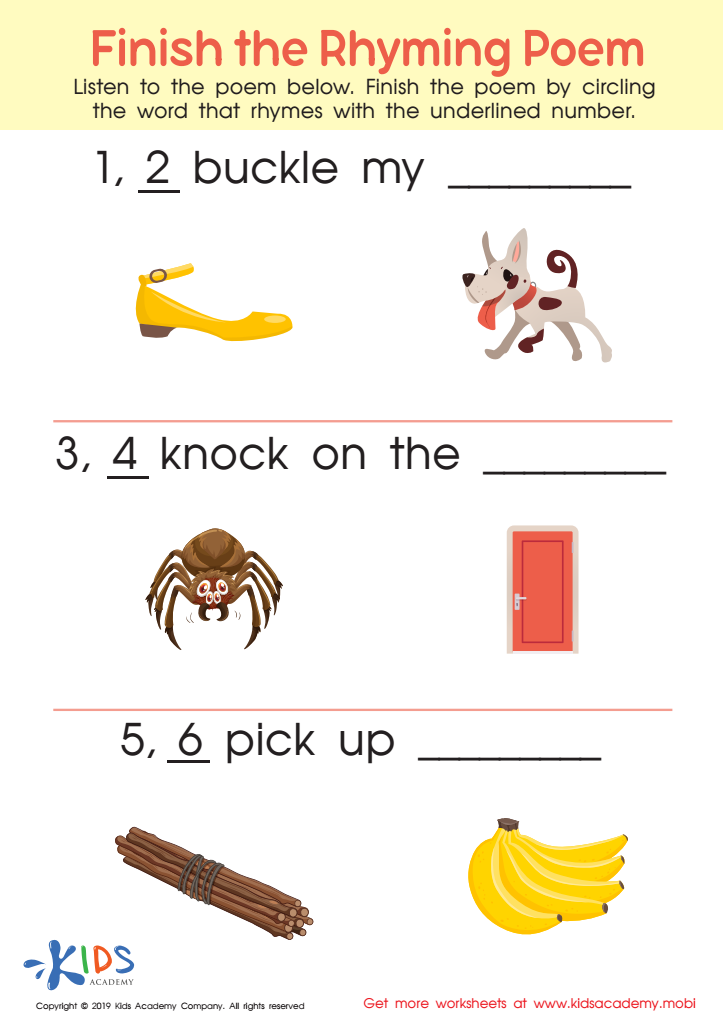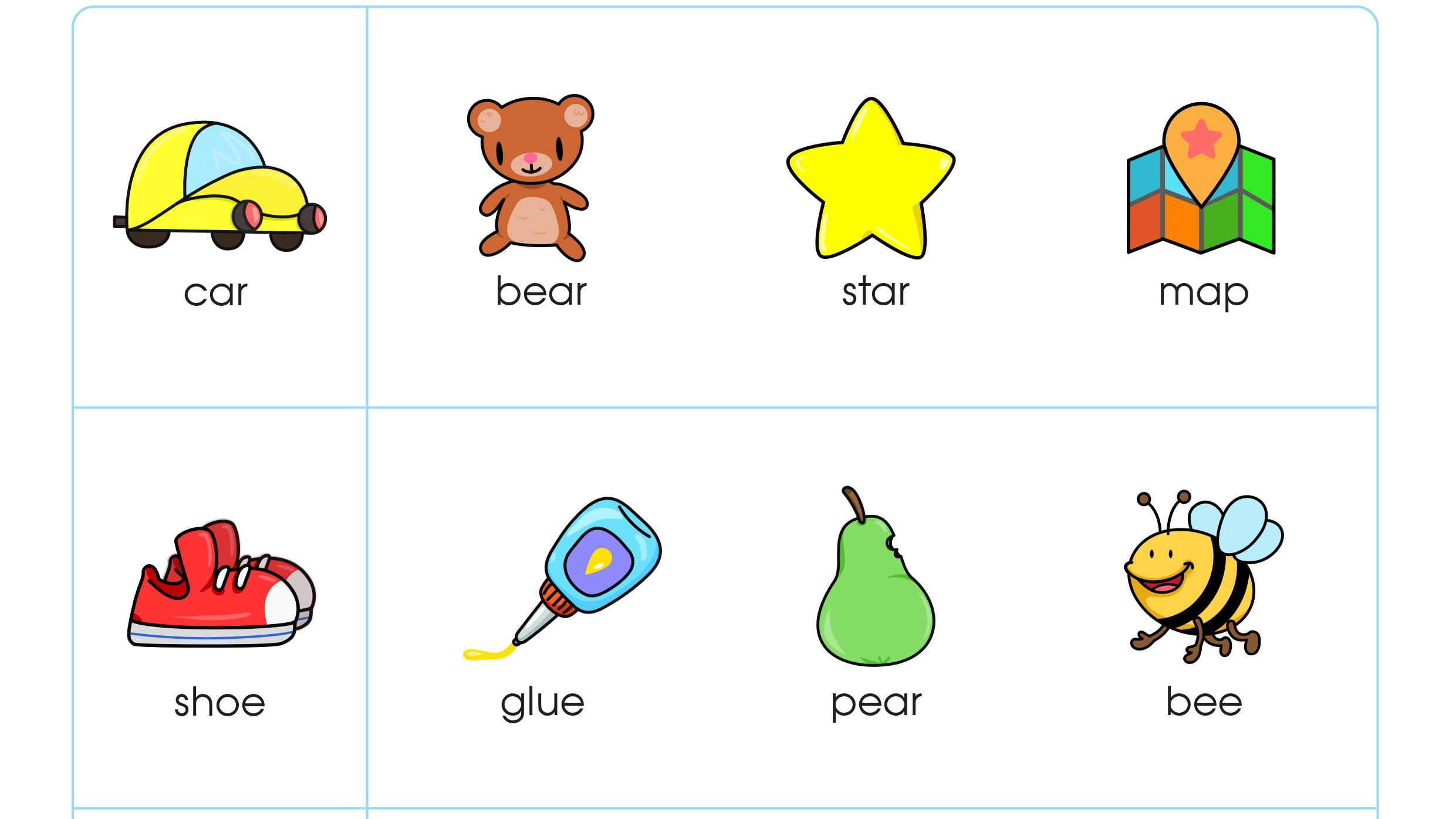Vocabulary enhancement Normal Rhyming Words Worksheets for 5-Year-Olds
5 filtered results
-
From - To
Discover a fun way to boost your child’s vocabulary with our engaging "Vocabulary Enhancement Normal Rhyming Words Worksheets" specially designed for 5-year-olds. These printable worksheets from Kids Academy help young learners recognize and practice rhyming words, enhancing their early reading skills through playful rhyme activities. Each worksheet is meticulously structured to promote phonemic awareness and build foundational language skills, making learning enjoyable and effective. Create an exciting word adventure with vibrant illustrations and engaging exercises that captivate and educate simultaneously. Give your child a head start in reading with our rhyming words worksheets!


Rhyming Words Rhyming Worksheet


First Words: Picture Rhymes Worksheet


Rhyming Words in Poems Worksheet


Finish Rhyming Poem Worksheet
Vocabulary enhancement, specifically through normal rhyming words, is critical for 5-year-olds for several reasons. At this pivotal age, children's brains are rapidly developing, and their ability to grasp language fundamentals is at a peak. Rhyming words, like "cat" and "bat" or "tree" and "bee," play a significant role in this process.
First, rhyming teaches phonemic awareness, which is the ability to hear, identify, and manipulate individual sounds in words. This foundational skill is crucial for reading success. By recognizing patterns in rhyming words, children learn to predict and decode unfamiliar words more easily, paving the way for smoother reading and spelling experiences.
Second, rhyming enhances memory and recall. Rhythmic patterns and repetition found in rhymes make it easier for young minds to remember new words. Enhanced memory contributes to a more extensive vocabulary, which is beneficial for both spoken and written communication.
Lastly, vocabulary growth through rhyming nurtures creativity and emotional expression. Engaging with rhymes often involves playful and imaginative language use, encouraging children to express themselves more freely.
Parents and teachers should focus on vocabulary enhancement with rhyming words as it contributes not only to academic skills but also to social and emotional development, laying a solid foundation for future learning.
 Assign to My Students
Assign to My Students
















